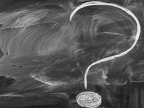Redemanuskript Re-Think Journalism
Tim Grieve, Chefredakteur POLITICOpro, Washington
Thanks for that introduction. Thanks for having me here today. And congratulations for reaching this amazing milestone of 50 years of broadcasting.
At POLITICO, we’ll celebrate our fifth anniversary next month, and that seems like a pretty big deal to us – especially since a lot of people (including me!) questioned whether POLITICO could survive a year.
But we’re not just surviving. We’re thriving. All across America, newspapers are shrinking – they’re laying off staff, cutting sections, literally reducing the size of the paper they’re printed on. Some are disappearing entirely.
POLITICO is doing the opposite. We’re growing. We’re adding new reporters, launching new features, exploring new ways to make journalism work as a business . And we’re breaking news every day -- including what has been the most consequential story of this presidential election season.
I don’t know how closely you all have been following the U.S. presidential race, but the Republicans are in the early stages of choosing their nominee to run against Barack Obama. And this fall, Herman Cain emerged as the front-runner. He was an unlikely candidate – someone with almost no political experience, a guy who’d made a name for himself as the CEO of a pizza chain. But he’s a charismatic speaker, he brought a outsider approach to the campaign, and he got a lot of attention with a simplified tax plan he called “9-9-9.”
That put him at the front of the Republican field – ahead of established politicians like Mitt Romney, the former governor of Massachusetts, Newt Gingrich, a former speaker of the House, and Rick Perry, who is currently the governor of Texas.
By this fall, Cain was ahead of all of them.
But then my colleagues at POLITICO broke a huge story: Herman Cain, it turns out, had been the subject of repeated claims of inappropriate behavior by women who worked with him. And Cain’s employer at the time had paid the women money to make the claims go away.
Cain denied our story up and down. His campaign dismissed POLITICO as a bunch of “liberals” in the “political trade press.” For a brief moment, they threatened to sue us.
And then, as more women came forward, Cain quit the race.
Well, he said he was “suspending” his campaign. But he hasn’t been out on the campaign trail since then. And in the Iowa caucuses this week – the first real test for the Republican candidates fighting for the right to challenge Obama – Herman Cain got just 58 of the 122,000 votes cast, well behind “Other” and “No Preference.”
I tell you about the Cain story not because it was a great scoop for the POLITICO reporters who got it. It was a great scoop. But I’m telling you the story to illustrate the first point I want to make here today:
Contrary to the title of this talk, some of the best journalism of the Internet age doesn’t require any “re-thinking” at all. The Herman Cain story may have raced across the Web via blog posts and Tweets, and people may have seen it on their iPhones and Androids rather than reading it in a newspaper or watching it on the Nightly News.
But that’s just the way the story was disseminated. It’s not the way the story was reported. And the POLITICO journalists who reported the Cain story did it exactly the same way journalists have done it from the very beginning: They got a whiff of the allegations, and they went to work trying to learn more. They spent weeks talking to people who had worked with Cain, former board members of the trade association he ran, current and former employees of the group, and other people familiar with its workings. They got their hands on some of the documentation. And when they felt that they had enough, they went to the Cain campaign – and then to Cain himself – and asked for a response.
With Cain’s not exactly responsive response in hand, our reporters finished their story and we published it. What they wrote could have run on the front page of the New York Times or the Washington Post or any other newspaper in the United States. That it happened to run first on a website -- our website -- has everything to do with where the reporters worked and nothing at all to do with how they did their work.
It was just good, old-fashioned journalism.
And that's a lot of what we do at POLITICO, despite the fact that most of our readers consume our news online rather than through our relatively small print edition. It's just experienced reporters, out talking to sources and working the halls of Congress and combing through documents. Like other good Internet publications, we can deliver the news faster once we get it. But the process of getting it is not really any different than it was when I started in journalism – at a newspaper, before the Internet existed.
Now that's not to say that the Internet hasn't changed journalism. It has. As the events of the last year have shown, it’s changed the whole world – and journalism in particular. Technology has put the tools of journalists in the hands of everyday people, allowing them to do things that only “real” journalists could do even a few years ago.
I have a clear memory from the 2004 presidential campaign. I was covering John Kerry for Salon in the days right before the election, and he’d said something newsworthy just as we boarded the press plane for the flight to the next campaign stop. The TV reporters were anxious to have the video clip on the 6 o’clock news, but we weren’t going to get to the next stop in time for them to get it to a satellite facility and upload it to New York or Atlanta or wherever home was. So as we were about to take off, they persuaded the pilot of the press plane to open the cockpit window and literally drop a video cassette to a producer waiting on the ground, who raced it to the local satellite outlet.
It was a step up from flying film reels back from Vietnam, but not much of one.
Now a kid with a cellphone camera can do all of that in an instant – he can create a video of an event, he can post it on YouTube or Facebook, and the world can see it in the time it took that pilot to wrestle open the cockpit window.
And I don’t need to tell you powerful that can be. Images of self-immolation, captured on smartphones and posted on Facebook, may not have caused the revolution in Tunisia, but they were a critical catalyst. Tweets and blog posts from inside Libya and Egypt captured the world’s attention and helped bring down Khadafi and Mubarak.
When a reporter from The Guardian asked some young Tunisians what they’re so busy photographing with their smartphones all the time, one of the kids responded in a way that suggested the answer should have been obvious. "Ourselves,” he said. “Our revolution. We put it on Facebook. It's how we tell the world what's happening."
“It’s how we tell the world what’s happening.”
How cool is that?
It’s what my colleagues and I went into journalism to do – people born with all the privileges of life in the United States and the freedom-of-speech protections our Constitution guarantees us. And now these kids from Tunisia can do that, too – and they don’t have to go to journalism school or land a job at a newspaper to do it. It’s empowering, it’s revolutionary, and it fulfills the biggest dreams people dared to dream for the Internet.
An early web evangelist predicted that the Internet might someday “flatten organizations, globalize society, decentralize control, and help harmonize people.”
And in this case, it has. I mean, Muammar Gaddafi may not have felt “harmonized,” exactly. But you know what I mean. Over the course of the last year, the Internet has brought people together in some of the hardest places in the world – people who might have held the same views if Twitter had never been invented, but who would have never been so empowered without it.
The Internet has changed the world. It has certainly changed their world.
But what about ours?
This is where I lose some of my excitement. For all the unifying effect that the Internet and social media and citizen journalism have had in some places, I worry that they’re not having the same effect in the United States.
The Internet isn’t bringing people together in the United States Instead, the Internet – or, more accurately, the way we use it – is helping to drive us apart.
In Sacramento, California, where I grew up, we all started the day reading the same morning newspaper, and we all ended the day by watching the national news on TV.
We didn’t necessarily agree about what we saw there, but we all saw the same stuff. That wasn’t always a good thing –there was virtually no chance that truly alternative views would get through, and God forbid you wanted to follow a football team from another time zone.
But we had the same frame of reference, a shared understanding of the “big stories” and the “basic facts” underlying them.
And now that’s almost entirely gone.
The U.S. is sharply divided along partisan lines, and I think our ability to pick and choose our news sources – whether through cable TV or through the Internet – is making matters worse.
We talk a lot about the marketplace of ideas – the notion that, in a free country, you just get all the ideas out there, and the best ones will ultimately rise to the top. And in a way, the Internet is that marketplace. With blogs and Tweets and Facebook posts and whatever comes next, we can all get our ideas out there.
But getting them out there isn’t the same thing as getting them into the mix. And that’s where things start to fall apart, at least in the United States. The Internet is not a marketplace of ideas. It’s two – or two million – marketplaces of ideas, most of them walled off along all-too-predictable partisan lines.
And with that divide, the good ideas don’t necessarily win out. They play well with people already inclined to like them, and that’s as far as it goes. Your store may sell better bread than my store. But if my customer never goes to your store -- if he doesn't even know your store exists -- then it really doesn't matter. You can keep selling your sub-par bread, and your customer will keep buying it.
In the U.S. over the last couple of years, hard-right conservatives who call themselves Tea Party patriots have used websites and email to spread the news about their events, to band together with fellow travelers across the country, and to hold Republican leaders' feet to the fire on taxes and government spending.
At the other end of the spectrum, liberal activists who call themselves Occupy Wall Street have used the Internet and social media tools to organize protests and call attention to the income and opportunity disparities in the country – to the ways in which Wall Street is still prospering even as unemployment hovers at unacceptably high levels.
In both cases, the groups couldn't do what they do without the Internet. The groups might grow, they might do events, but they couldn’t spread as quickly as they have or capture national attention like they have without the power that social media gives them.
But they’re both preaching to the choir. Or, more accurately, they’re preaching to their own separate choirs. The ideas of the Tea Party movement aren’t taken seriously on the left; instead, the Tea Partiers are marginalized as cranks and hypocrites, old folks who are cashing their Social Security and Medicare checks and then pulling up the drawbridge after them. And the ideas of Occupy Wall Street aren’t taken seriously on the right; instead, the Occupy folks are marginalized as dirty hippies, confused, afraid of work, and looking for a free ride.
And because so many of us are now getting our news from one perspective or the other, we see these groups from one perspective or the other, and we’re seldom forced to reckon with the fact that we . . . might . . . be . . . wrong.
And the Internet gives us that “freedom.” If I’m a partisan on one side or the other, and I choose my sites accordingly, I might never hear the other side of a story – or even know that another side exists. I have the freedom to be ignorant. Or I have the freedom to be extremely well informed – on the handful of things about which I choose to be well informed, and by the handful of people I want informing me.
We’re free to be neither, of course – to assiduously balance our own reading habits and split-screen between liberal and conservative blogs. But few of us have that discipline, especially when we could be playing Angry Birds.
And we get further entrenched in our views, we grow more and more likely to distrust, discredit and ultimately delegitimize any publication that strays from our accepted narratives – so much so that we don’t tune in to those news sources except to confirm that they’re every bit as ridiculous as we think they are.
For big swaths of the American public now, the New York Times isn’t just a paper they’ve never read – it’s a paper that they know is spreading liberal lies. For another swath, Fox News plays the same role on the right.
Everywhere I go, I run into people who tell me they can’t read their local newspaper anymore because it’s “too liberal” or “too conservative.”
I hear it about my own publication. On the right, we’re sometimes mocked as “left-wing POLITICO" or that "left-wing blog POLITICO." From the left, we’re mocked as “right-wing POLITICO” – or, in the words of Salon, where I used to work – “the right-wing POLITICO cesspool.”
Neither characterization is right. At POLITICO, we play it right down the middle. We’re completely non-partisan, with no political agenda one way or the other. I've been an editor at POLITICO for four years, and I can honestly say that I know the politics of maybe half a dozen people there -- and none of them is what I'd call an ideologue.
But we sometimes tell stories that infuriate people on the right or infuriate people on the left. And so we get stuck with the names.
And I think that’s the real challenge facing journalism now. Well, there’s the challenge of how to make money, but that’s a whole different speech.
The challenge I’m talking about here is the challenge of being trusted – of being relevant and credible even to people who are inclined to think you’re neither.
People are always going to call you names. But you do you make sure that they keep reading you?
I think it requires a careful mix of the old and the new.
We need professional reporters who work day in and day out to hold our leaders accountable – to report on what’s actually happening in Congress or the White House or the Chancellor’s Office. A kid with a smartphone can’t do that.
And we need to follow the traditional commandments of journalism – be fair, tell both sides of the story, get it right, be upfront about it when you’re wrong.
And then we need to marry all of that to best practices of the Internet. Get the news out quickly, in the “real time” in which people live. Get it to them where they need it – on their iPhones and their iPads, on their Facebook pages and their Twitter accounts.
And most important, we need to be fearless and we need to be smart. That might be the biggest lesson we can learn from the Internet. The web is full of really smart people speaking truth to power, and they’re not afraid to call it how they see it.
Having seen what that looks like, readers no longer have much patience for boring old “he said, she said” journalism. They want reporters who can tell them what’s really happening – the stories behind the press releases and the sound bytes, the stories reporters tell each other at the bar after work. And they want those stories delivered in accessible ways – not in the detached voice of the journalism Gods, but in a direct style that respects both their intelligence and the fact that they’re getting their news from multiple sources.
If we can do that – if we can do the hard work of traditional journalism and deliver it with the passion and the speed of the web – then I think professional journalists can survive alongside the bloggers and the Tweeps and the kids with the smartphone.
And if we don’t, we’ll all go the way of Herman Cain.
The success of our five-year experiment at POLITICO gives me a lot of hope. And if we meet again in 2057 for our 50th anniversary, we’ll know that it paid off. Until then, thanks again for having me, and congratulations, again, to all of you.








